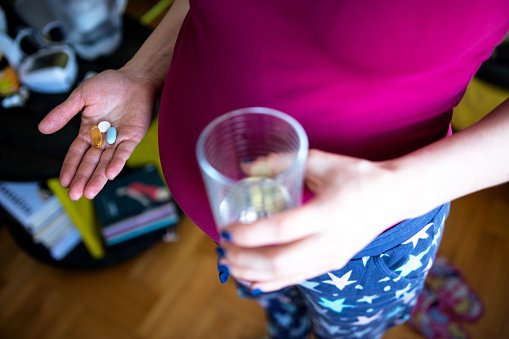Pregnancy is a special time, but it does not make it any less daunting, especially when you are a first-time mother.
There is a lot that mothers are not aware of, and that can then become daunting for them. Amongst the most common questions that pregnant women have is what to make of their diet and subsequently, the supplements.
While the eating for two myth has been debunked, it then posits the challenge of what to do about the nutritional needs of not just the baby but one’s own self as well.
Whereas it is always important to confer with your Gynecologist in Lahore for guidance, prenatal vitamins are most often recommended by the doctors, and needed by the mothers.
These vitamins are designed around the needs of a pregnant woman, as the body’s requirement for certain nutrients increases during this time. Our lifestyles are, unfortunately, such that we do not eat well all the time, and thus not all of us can rely on our diet alone for fulfilling the needs.
Deficiency of vital nutrients has implications for not just the health of the mother, but the baby can also not just be deficient but also suffer from deficiency diseases.
Therefore, prenatal vitamins are generally prescribed to women, as the consequences otherwise are rather grave.
Nutrients that are important
While you should ask your doctor for recommendations on the best vitamins, you also need to have the knowledge as to what you should be looking for in your vitamins.
Some nutrients that are especially important for the mother and the baby include:
Calcium
Calcium is required by the body for building the baby’s bones and teeth. If adequate calcium is not taken by the mother, the baby will fulfill its needs regardless, by the extraction of calcium from the mother’s bone and teeth.
Consequently, toothache and pains around the body set in the mother, during and after pregnancy.
Hence, it is imperative that the need of around 1000 mg of calcium is being met by the mother daily. Alongside drinking milk, consuming other dairy products, and incorporating green leafy vegetables, taking the prenatal vitamins is also recommended.
Choline
Choline is required for the brain development of the baby alongside preventing birth defects.
Iron
Iron plays an important role in the transport of oxygen, not just in your body, but the baby’s as well. The need is heightened during pregnancy; pregnant women need 27 mg of iron.
There are different ways it is utilized in the body. Iron is required to make placenta. It is also needed for fetal development as well.
The best source of iron is through our diet, since only a limited amount is absorbed by the body, and there is no danger of overconsumption. But since the requirement is increased during pregnancy, it is good to take supplements with adequate amounts of iron in them.
Moreover, some women have iron deficiency anemia, a condition in which their iron levels run very low. Depending on your iron levels, your doctor might then prescribe supplements accordingly.
Folic acid
Folic acid is imperative for the wellbeing of the baby. The deficiency of folic acid posits the risk of neural tube defects that include diseases like spina bifida and other abnormalities of the brain and spinal cord.
Alongside preventing neural tube defects, folic acid promotes the growth and development of the placenta and the fetus.
Hence, it is necessary for women to take adequate folic acid before getting pregnant, and during the initial period of pregnancy. The daily requirement is around 600 mg.
Vitamin D
Vitamin D is required not only for the absorption of calcium, but it is also required to lower the risk of pre-eclampsia, preterm labor, and low birthweight.
Hence, alongside getting enough Sun, confer with your Gynecologist as to which prenatal vitamins you should be consuming.


